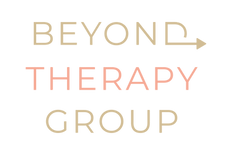July 4, 2025
Men’s Mental Health: Strategies to Tackle Challenges and Thrive

Mental health doesn’t discriminate. It affects people of all genders, backgrounds, and ages. Yet when it comes to men’s mental health, stigma, silence, and societal expectations often get in the way of meaningful care and healing. For generations, men have been taught explicitly and implicitly to suppress emotions, push through pain, and equate vulnerability with weakness.
The cost of this conditioning is high: men are less likely to seek help, more likely to suffer in silence, and disproportionately affected by suicide, substance abuse, and untreated mood disorders.
At Beyond Therapy Group, we believe mental health support should be as accessible and stigma-free for men as it is for anyone else. This article explores the common mental health challenges men face, why they often go unaddressed, and actionable strategies that help men not just survive but thrive.
The Silent Struggle: Understanding Men’s Mental Health
According to the CDC and National Institute of Mental Health, millions of men in the U.S. experience depression, anxiety, and other mental health concerns every year. However, these conditions often go underdiagnosed or undertreated because men are less likely to report symptoms or seek therapy.
Common Challenges Affecting Men:
- Depression (which may manifest as irritability, anger, or physical symptoms)
- Anxiety (including social anxiety, performance pressure, or generalized worry)
- Substance Use Disorders (often used as a coping mechanism)
- Post-Traumatic Stress Disorder (PTSD)
- Relationship Stress & Fatherhood Transitions
- Work Stress, Burnout, or Financial Pressure
- Suicidal Thoughts – Men account for roughly 80% of all suicide deaths in the U.S.
Many men may not even realize they’re struggling with mental health issues, because the signs don’t always look like what’s shown in media or textbooks. Instead of sadness, a man might feel rage. Instead of talking, he might shut down or withdraw. This difference in how symptoms present can delay diagnosis and support.
Why Men Often Don’t Seek Help
There are several interconnected reasons men avoid therapy or downplay their mental health:
Social Stigma & Masculine Norms
Many men grow up being told: “Man up,” “Don’t cry,” or “Handle it yourself.” These messages suggest that emotional pain is weakness, and reinforce stoicism over vulnerability.
Fear of Judgment
Men may fear being perceived as less competent, less masculine, or a burden to others if they admit they’re struggling.
Lack of Representation in Therapy
Some men worry they won’t find a therapist who understands their background or values. They may also feel that therapy spaces are “not for them.”
Misdirected Coping Mechanisms
To numb or escape emotional pain, men might turn to alcohol, overwork, risky behaviors, or emotional shutdown strategies that offer short-term relief but long-term harm.
Strategies to Support Men’s Mental Health
The good news? Change is possible. Whether you’re seeking help for yourself, supporting a loved one, or advocating for awareness, here are effective ways to move forward.
Normalize Mental Health Conversations
Talking about mental health doesn’t have to be dramatic. Start by sharing small emotional truths. Ask a friend how they’re really doing. Use language that feels comfortable what matters is breaking the silence.
Seek Therapy That Respects Your Experience
Modern therapy is not about lying on a couch and talking about your childhood unless that’s what you want. At Beyond Therapy Group, we use evidence-based approaches that honor your goals, time, and preferences.
Look for therapists who specialize in:
- Men’s mental health
- Relationship therapy
- Performance and work stress
- Anger or emotional regulation
Identify and Express Emotions
Men are often socialized to have just two emotional settings: neutral or angry. Therapy helps men name and safely express a wider emotional range, from disappointment and grief to hope and joy.
Journaling, mindfulness, and even creative outlets like music or movement can support emotional literacy.
Set Boundaries and Balance
Many men carry overwhelming pressure to provide, protect, and perform. Therapy helps you redefine success in sustainable terms, and teaches you how to set boundaries at work, in relationships, and within yourself.
Challenge Internalized Beliefs
Healing requires unlearning. You’re not weak for asking for help. You’re strong for taking responsibility for your well-being. Cognitive Behavioral Therapy (CBT) and Acceptance and Commitment Therapy (ACT) are two powerful tools we use to challenge limiting beliefs that keep men stuck.
Focus on Whole-Body Health
Mental health is deeply connected to physical health. Consider:
- Getting regular exercise (supports dopamine, serotonin)
- Limiting alcohol and stimulants
- Sleeping 7–9 hours per night
- Eating balanced meals
We encourage men to see their body and mind as a team, not separate systems.
How Therapy Supports Men’s Growth
Therapy isn’t about becoming someone else it’s about becoming more fully you, with tools to navigate life’s ups and downs with clarity, purpose, and calm.
Some key benefits of therapy for men include:
- Greater self-awareness and emotional control
- Stronger communication and relationship skills
- Better performance under pressure (personal and professional)
- A sense of confidence that’s rooted in authenticity not performance
- Freedom from shame, guilt, or unresolved pain
Whether you’re navigating a divorce, the transition into fatherhood, workplace stress, or trauma, therapy can meet you where you are and help you build where you want to go.
Frequently Asked Questions
- Is therapy really effective for men?
Yes. Research shows that men benefit just as much from therapy as women when they feel respected and understood in the process. The key is finding a therapist who aligns with your communication style and values. - What if I don’t know how to talk about my emotions?
That’s completely okay. You don’t need to be a mental health expert to get started. A good therapist will guide the conversation at your pace, using questions, tools, or even humor to create a comfortable space. - How long does therapy take to “work”?
It depends on your goals. Some men benefit from short-term, solution-focused therapy (6–12 sessions), while others prefer longer-term support. Your therapist will help you build a plan that fits your needs. - Do I have to talk about childhood trauma?
Only if it feels relevant to your goals. While your past may influence the present, therapy can be present- and future-focused, helping you tackle the issues impacting you today. - Is group therapy or men’s support group an option?
Absolutely. Many men find support groups or group therapy a powerful way to connect with others going through similar experiences. We can help you find the right setting based on your comfort and goals.
At Beyond Therapy Group, Men’s Mental Health Matters
Men’s mental health deserves the same care, attention, and access as any other health concern. At Beyond Therapy Group, we’re committed to breaking stigma and building trust by offering therapy that meets men where they are with respect, clarity, and results.
Whether you’re new to therapy or ready to pick it back up, you don’t have to do it alone. You deserve to thrive not just function.
Reach out today to schedule a consultation. Let’s start your journey toward resilience, healing, and the life you want to lead.
Recent Posts
